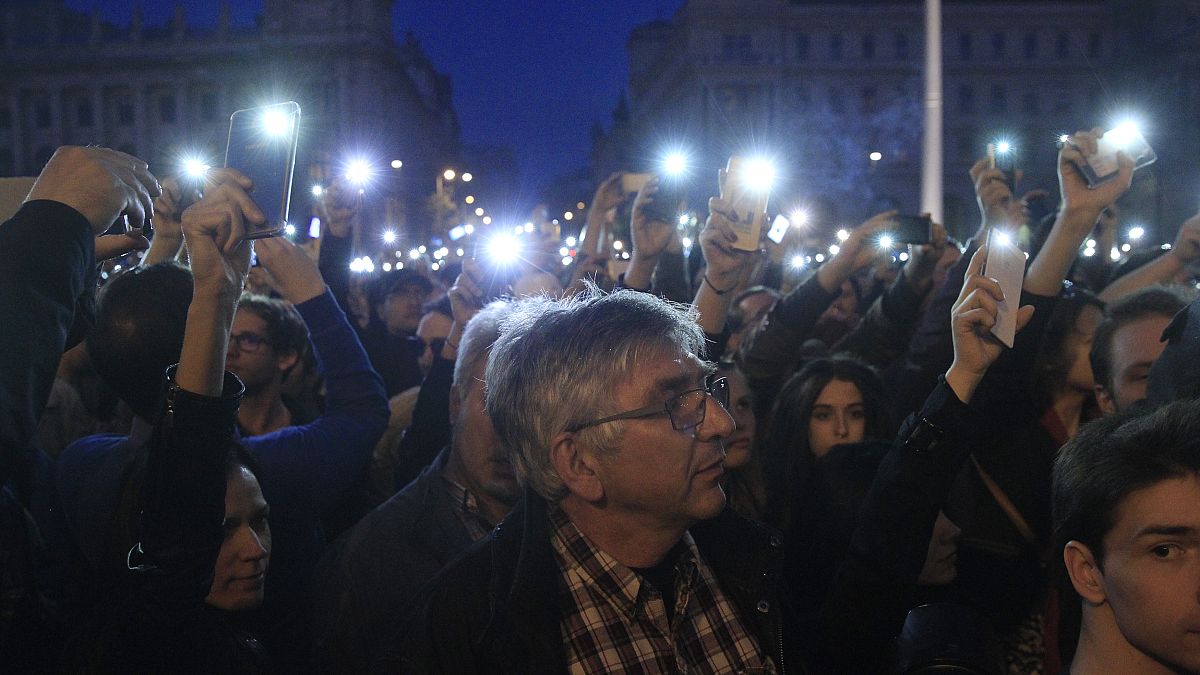Human Rights Watch praises France under Macron for tackling xenophobia, but blasts Austria and the Netherlands for pandering to populists.
Leaders can succeed if they “push back strongly against politicians who demonize minorities, attack human rights, and undermine democratic institutions”, according to Human Rights Watch (HRW) in a new report on fighting populism.
The global campaign group argues that the events of 2017 showed that politicians who took a principled stand over human rights were able to limit authoritarian populist agendas – but where they gave in, it allowed such programmes to flourish.
Human Rights Watch singles out the electoral defeat of the National Front in France, and EU challenges to government plans in Hungary and Poland, as examples of successful or encouraging resistance in Europe.
The report also says that President Donald Trump’s election in the United States saw a wide range of organisations and individuals rise up against the new leader’s “anti-immigrant, racially divisive, and pro-drug war policies”.
“The past year showed the importance of pushing back against the threat posed by demagogues and their abusive policies,” says HRW’s Executive Director Kenneth Roth.
Europe — a mixed picture
France is praised as “the most prominent example of successful resistance to xenophobic populism”, with President Emmanuel Macron “firmly opposing the National Front’s campaign of hatred against Muslims and immigrants” and becoming elected as president. But the report says his record in government has been mixed at home and abroad.
Poland’s “attempts to undermine the rule of law and judicial independence” brought public protests and strong criticism from European institutions, HRW says. In Hungary, government plans to close a university that opposed Viktor Orban’s “illiberal democracy” ran into trouble due to resistance.
In contrast, centre-right party leaders in Austria and the Netherlands are accused of pandering to populism by bringing “xenophobic, anti-immigrant, and anti-Muslim positions” into the mainstream.
Anti-rights forces were also allowed to prosper when President Recep Tayyip Erdogan “decimated Turkey’s democratic system”, international concern flagging as the EU focused instead on enlisting the president’s help to stem the flight of refugees to Europe.
Fighting Trump — and global abuses
The HRW report highlights widespread opposition to the US president during his first year in office. There was “a broad reaffirmation of human rights” as “popular organisations, civic groups, journalists, lawyers, judges, and even elected members of Trump’s own party” resisted his policies, it says.
Challenging Trump abroad, governments in the Netherlands, Belgium and Scandinavia “led efforts” to establish an international fund to replace anticipated US funding cuts to reproductive health programmes.
Numerous advances in women’s rights are listed, with France and Sweden praised for their policies – as are Tunisia, Jordan and Lebanon in the Arab world. “The Women’s March in the US morphed into a global phenomenon,” HRW says.
However, the report says Egypt, China and Russia were able to crush public dissent, with other countries and international bodies unwilling or afraid to speak out.
Europe on the world stage: ‘could do better’
Human Rights Watch paints something of a David v Goliath situation in praising Liechtenstein over Syria. Faced with an intransigent Russia at the UN Security Council, the small European nation built a broad coalition to seek a resolution at the General Assembly.
However, the hesitancy of European countries among others have left a vacuum and allowed mass atrocities to happen in places such as Yemen, Syria, Myanmar and South Sudan.
Kenneth Roth warns of the dangers of failing to champion human rights, describing “a UK preoccupied with Brexit, and European countries grappling with the influence of xenophobic populists”.
“The central lesson of the past year is that human rights can be protected from populist challenge,” HRW’s executive director says. “What’s needed is a principled defence rather than surrender, a call to action rather than a cry of despair.”
